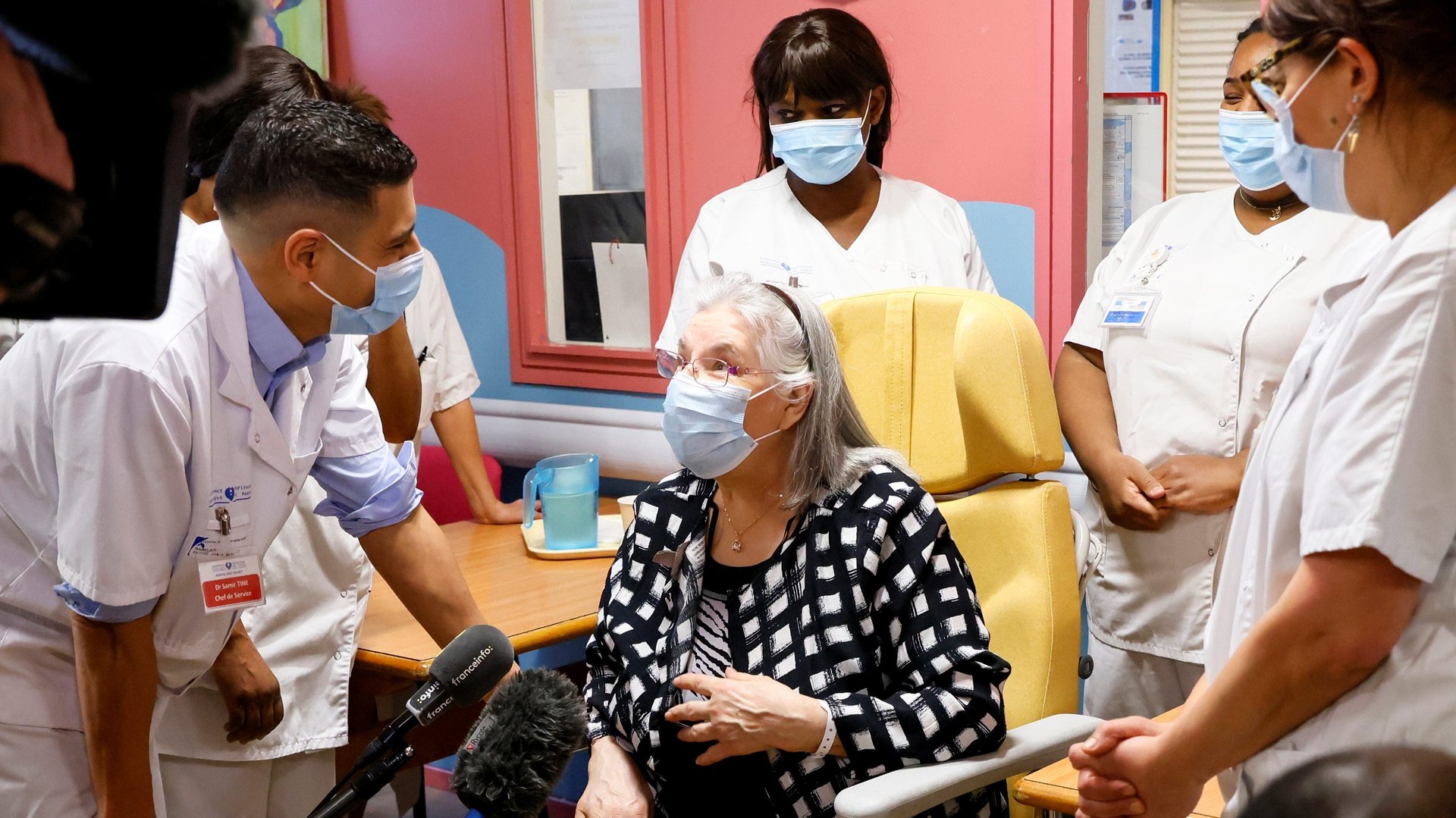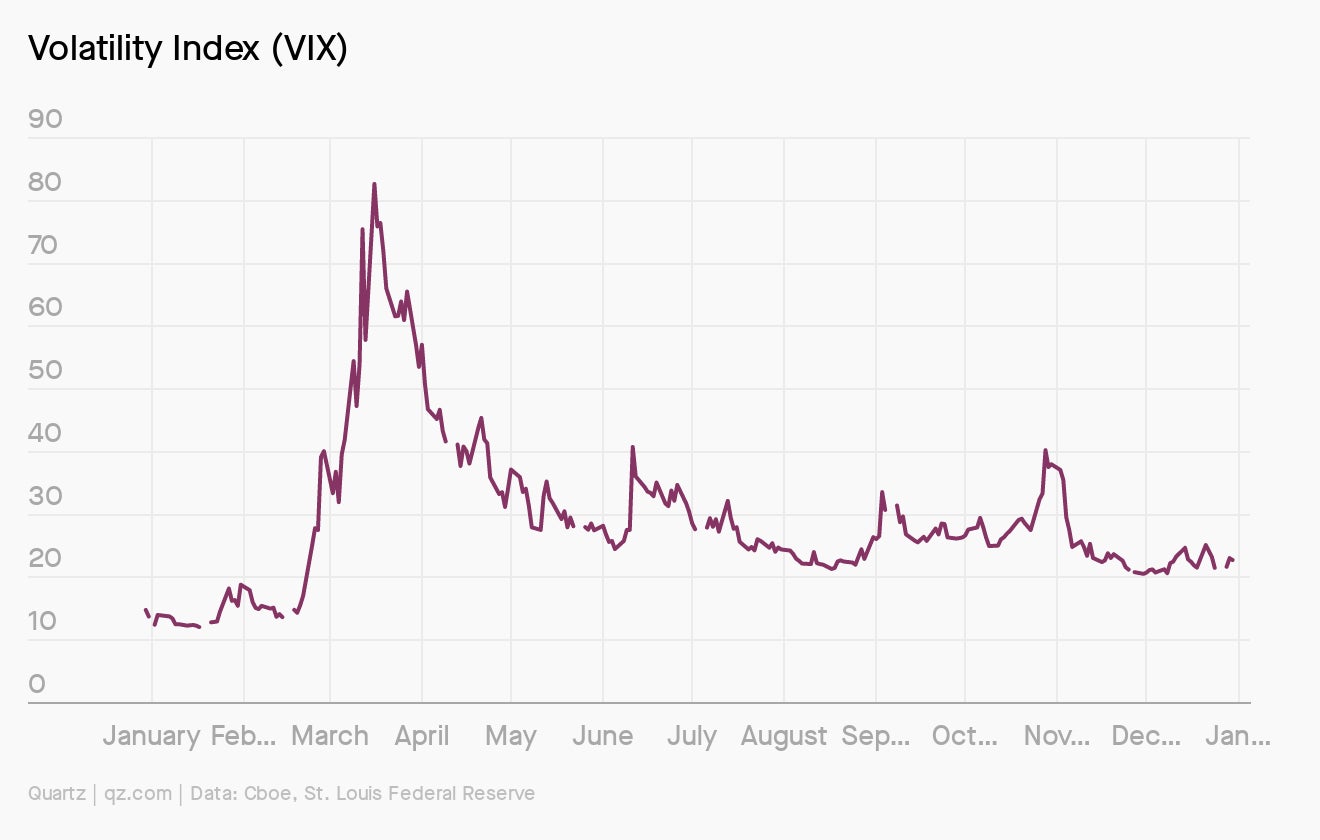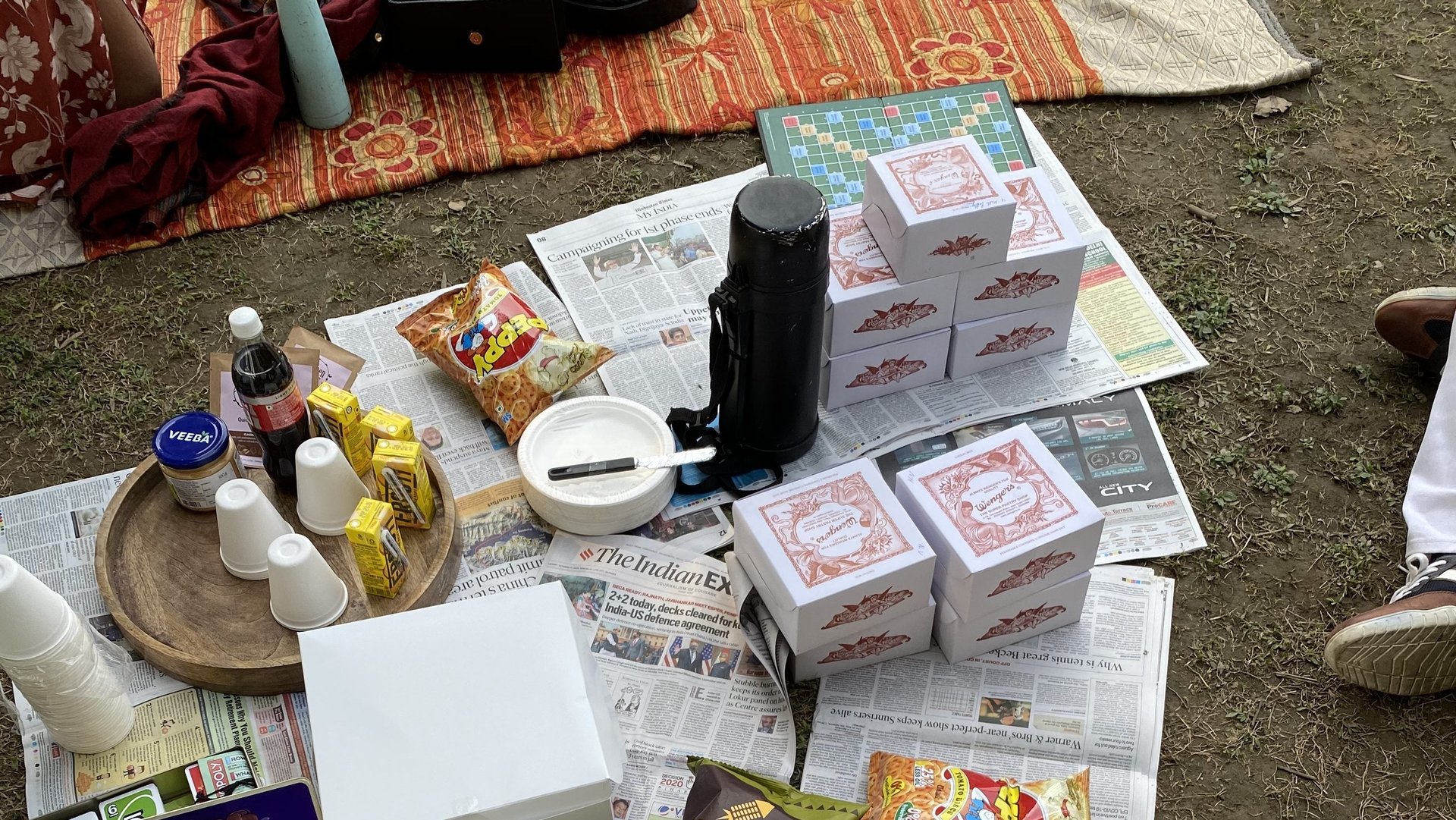French, pressed
Hello Quartz readers,


Hello Quartz readers,
Misinformation and fear are derailing France’s already slow Covid-19 vaccine rollout, barely a week after it began.
As of Jan. 1, only 516 people had been vaccinated against Covid-19 in the country, according to health data aggregation site CovidTracker. By comparison, the UK administered jabs to more than 130,000 people in the first week of its rollout.
This isn’t a supply problem: According to CovidTracker, France has more than 560,000 doses of the vaccine in stock. The country also has one of the best health care systems in the world (pdf). So, what’s behind the delay?
The government argues it’s the logistical challenge of setting up the rollout in retirement and nursing homes, whose residents are the first on the list to receive the vaccine. Health minister Olivier Véran said vaccinations would pick up this week, and promised that France would catch up to its neighbors by the end of the month.
Some experts say it won’t be that easy. The French are among the most vaccine-skeptical people in the world: In a survey of French adults conducted a month ago, only 39% said they intended to get vaccinated against Covid-19 when they had the chance.
To counter vaccine hesitancy, the French government designed a rollout centered on individual choice. Health authorities constantly stress that getting the jab isn’t mandatory. They offer every patient a consultation with a doctor who collects patients’ consent and informs them of “the benefits and risks of vaccination.”
While it is standard practice for French people to meet with doctors before being vaccinated, in the context of a pandemic, the process can cause delays. For example, nursing homes must give patients an “additional time of reflection” to decide whether they want the vaccine or not.
For some, this is an honorable attempt at transparency. But for critics, it’s overkill. Axel Kahn, president of the French National League Against Cancer, writes that France’s delay in vaccinations is linked to “the administrative burden and procedural rigidity of the bodies of the State.” He blames a public communication strategy that over-emphasizes risks and de-emphasizes progress. “What of the hope of the vaccine, the path it traces, the extraordinary scientific adventure it represents?” he writes. “Almost nothing.”
You asked
Covid-19 vaccination is a new social dividing line: Those who have been vaccinated will likely encounter fewer barriers to travel, while everyone else remains subject to restrictions, quarantining, and testing. That’s why some health technology experts are advocating for “vaccine passports,” smartphone apps that could certify a user’s vaccination status.
Vaccine passports could help get the global economy back on track, but major questions remain. We looked into some of them, including:
🛂 What is a vaccine passport?
🤔 How will they work?
📅 When will they be available?
😬 What are the downsides?
😷 Will you still have to wear a mask?
Fear and present danger
US stock market investors are an optimistic bunch right now, but one index is showing at least some degree of caution. While the S&P 500 index of large US stocks closed out 2020 at a record high, the Volatility Index (VIX), often called the market’s “fear gauge,” has yet to return to levels seen before the pandemic erupted. The VIX tracks stock options tied to the S&P 500 index, and is a gauge of traders’ expectations for the coming months.

The benchmark is hovering at nearly double the level it was a year ago—suggesting a new normal relative to the placid expectations of recent years. “Vaccination is barely starting and we are living in a post-Covid world,” says Olivier Korber, a strategist at Société Générale. “The notion of ‘normality’ needs to be revisited, and its standards can hardly be the same than before the pandemic, which is still far to be over.”
Made in China
Sinopharm, China’s state-owned drug company, has announced promising phase 3 clinical results for its vaccine candidate. According to the company’s press release, its vaccine was 79.34% effective at preventing new cases of Covid-19.
…And that’s about all we know. The release was a mere 150 words:
According to the statistical analysis of Sinopharm China Biotech, the results of the interim analysis of the new coronavirus inactivated vaccine phase III clinical trial showed that the safety of the new coronavirus inactivated vaccine of Sinopharm China Bio Beijing Company is good after inoculation, and the vaccine group is vaccinated after two injections of the immunization program. All patients produced high-titer antibodies, the neutralizing antibody positive conversion rate was 99.52%, and the vaccine’s protective efficacy against the disease caused by the new coronavirus infection (Covid-19) was 79.34%. The data results reached the relevant technical standards of the World Health Organization and the country. The “Guiding Principles for Clinical Evaluation of New Coronavirus Preventive Vaccines (Trial)” issued by the Food and Drug Administration is required by relevant standards. At present, Sinopharm China Biotech Beijing has formally submitted a conditional listing application to the State Food and Drug Administration.
Like other releases put forth by the companies developing vaccine candidates, Sinopharm’s doesn’t contain any peer-reviewed data—the company is submitting its actual data to China’s drug regulatory authority directly. But Sinopharm’s release is by far the briefest announcement of any published thus far, and doesn’t mention study size, participant demographics, or side effects.
Life’s a picnic
Delhi’s 90-acre Sunder Nursery is part monument, part sprawling garden, part lake, and a whole lot of landscaped beauty. Ecological and archaeological conservation form its foundation, while the tomb of Mughal emperor Humayun—built in 1570—lies just outside it. Inside are six 16th-century monuments designated by Unesco as world heritage sites. There’s also a tasteful farmer’s market on weekends, and a café across the lake.
But Sundar Nursery’s claim to more recent fame has to do with Covid-19. Because of the unparalleled safety and socially-distanced comfort of the great outdoors, picnics are making a comeback in Delhi’s iconic parks and outdoor spaces.

But make it fashion
“Fashion is integral to our existence, not an irrational indulgence. It springs from deeply rooted impulses to adorn the self, to communicate sensuously, to participate in the social collectivity and lend it shape and legibility.” —Rhonda Garelick, dean of the School of Art and Design History and Theory at Parsons in New York
If so much of fashion exists for the eyes of others but nobody is there to see it, what purpose does it serve? It’s a question shoppers and fashion businesses are having to confront as Covid-19 roils the industry. While fashion’s outlook isn’t terminal—the need to communicate our identities through clothing isn’t going anywhere anytime soon—for now, the companies that normally cater to shoppers looking to convey an image are feeling the impact.
😎 What else isn’t an irrational indulgence? Quartz membership. Kick 2021 off right by enjoying your first week on us.
Essential reading
- The latest 🌏 figures: 86.2 million confirmed cases; 48.4 million classified as recovered; 14.6 million vaccine doses administered.
- Premature inoculation: India approved its vaccine before completing human trials.
- Beijing backlash: People in China refuse to forget a Covid-19 whistleblower.
- Remote control: How to be a successful remote employee.
- Fake the cycle: The best home workout accessory is an under-desk bike.
- It’s OK not to be OK: Covid-19 changed the way we talk about emotions at work.
Our best wishes for a healthy day. Get in touch with us at [email protected], and live your best Quartz life by downloading our iOS app and becoming a member. Today’s newsletter was brought to you by Annabelle Timsit, Tim McDonnell, Katherine Foley, John Detrixhe, Manavi Kapur, Marc Bain, and Kira Bindrim.